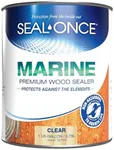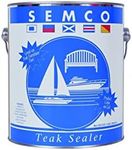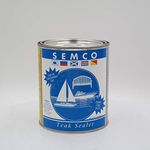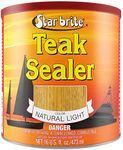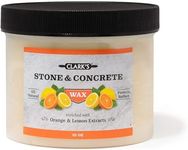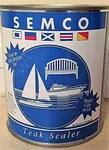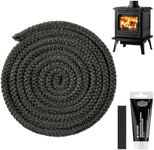Buying Guide for the Best Marine Teak Sealer
Choosing the right marine teak sealer is important for protecting and maintaining the natural beauty of teak wood on boats and outdoor furniture. Teak is a durable hardwood, but exposure to sun, saltwater, and weather can cause it to fade, crack, or develop mildew. A good sealer helps preserve the wood’s color, prevents water damage, and makes cleaning easier. When selecting a teak sealer, consider how much maintenance you’re willing to do, the look you want for your teak, and the environmental conditions your teak will face.UV ProtectionUV protection refers to the sealer’s ability to shield teak wood from the sun’s ultraviolet rays, which can cause the wood to turn gray and deteriorate over time. Some sealers offer strong UV blockers, while others provide minimal protection. If your teak is exposed to direct sunlight for long periods, look for a sealer with high UV protection. For shaded or indoor use, a lower level may be sufficient. Your choice should depend on how much sun exposure your teak will get and how important it is to maintain its original color.
Water ResistanceWater resistance is the sealer’s ability to prevent water from penetrating the wood, which helps avoid swelling, cracking, and mold growth. Sealers vary from light water repellency to heavy-duty waterproofing. If your teak is on a boat or in a very wet environment, choose a sealer with strong water resistance. For furniture that stays mostly dry, a lighter sealer may be enough. Think about how much rain, splashing, or humidity your teak will face when deciding.
Finish AppearanceFinish appearance describes how the sealer changes the look of the teak, ranging from natural matte to glossy or slightly tinted. Some sealers keep the wood looking raw and natural, while others add a sheen or enhance the color. If you want your teak to look as close to new as possible, pick a sealer that preserves its natural appearance. If you prefer a richer or shinier look, choose a sealer that adds gloss or color. Your personal taste and the style of your boat or furniture should guide this choice.
Ease of ApplicationEase of application refers to how simple it is to apply the sealer, including how many coats are needed, drying time, and whether special tools are required. Some sealers are wipe-on and quick-drying, while others need careful brushing and longer drying times. If you want a low-maintenance option, look for a sealer that’s easy to apply and doesn’t require frequent reapplication. If you don’t mind spending more time for a longer-lasting result, a more involved product may be suitable. Consider your comfort with DIY projects and how often you want to reapply the sealer.
LongevityLongevity is how long the sealer will last before it needs to be reapplied. Some sealers protect for only a few months, while others can last a year or more. If you want to minimize maintenance, choose a long-lasting sealer. If you don’t mind regular upkeep or want to refresh the look often, a shorter-lasting product may be fine. Think about how much time you want to spend on maintenance and how often you’re willing to reapply the sealer.
Environmental FriendlinessEnvironmental friendliness refers to how safe the sealer is for the environment, including whether it contains harsh chemicals or is biodegradable. Some sealers are water-based and low in volatile organic compounds (VOCs), making them safer for you and the environment. If you’re concerned about environmental impact, look for eco-friendly options. If performance is your top priority, you may consider traditional formulas. Your values and local regulations can help guide this decision.
